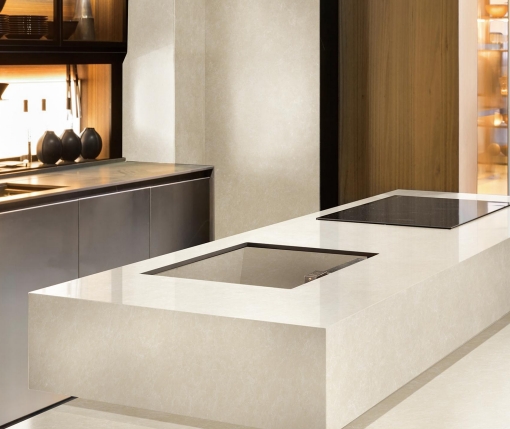Porcelain slabs are an attractive, durable, and cost-effective countertop material that can be used to bring a modern and stylish look to any home. However, it is important to understand the different types of porcelain slab thickness and the factors to consider when determining the best option for your project. This article will provide a detailed look at porcelain slab thickness, features, and installation considerations to help you make an informed decision.
- Porcelain slab thickness determines strength, durability, and overall performance in countertops, flooring, and wall coverings.
- Thinner slabs reduce weight and improve aesthetic value, while thicker slabs are more resistant to wear and tear and can withstand heavier loads.
- Standard porcelain slab thickness ranges from 6mm to 20mm, with 6mm slabs best for low-traffic areas and 20mm slabs more suitable for areas with heavier use.
- Factors such as intended use, substrate strength, glazed vs unglazed slabs, outdoor vs indoor applications, and desired aesthetics all influence the selection of porcelain slab thickness.
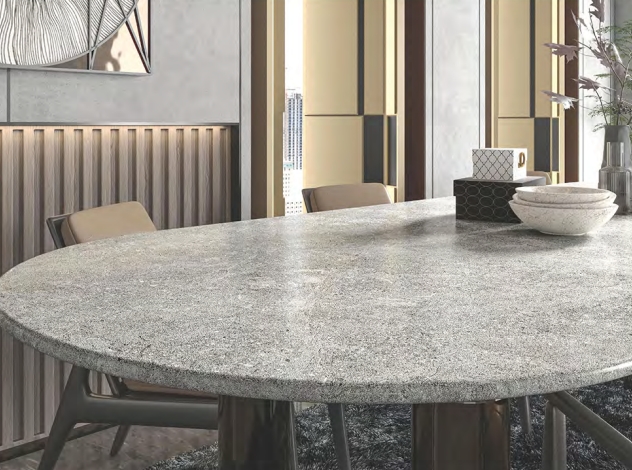
I believe that porcelain slab thickness is a critical factor in many applications, as it determines the strength, durability, and overall performance of the material. Beautiful porcelain slabs are often used in bathroom and kitchen countertops, flooring, and wall coverings due to their low maintenance, high durability, and aesthetic value.
The slab dimensions are a crucial factor in the design and installation of these materials, as they determine the amount of material needed and the load-bearing capacity of the slab. A thinner porcelain slab can reduce the weight of the countertop or flooring, improving its aesthetic value. On the other hand, a thicker slab is more resistant to wear and tear and can withstand heavier loads.
The porcelain slab countertop thickness is determined by the type of application and the load it is expected to bear. For instance, a thicker slab is required for use in a kitchen countertop, as it will be exposed to more wear and tear. A thinner slab, on the other hand, is suitable for flooring and wall coverings where load-bearing is not a factor.
In addition, the porcelain slab thickness can affect the installation process, as the slabs must fit the desired specifications. For these reasons, it is important to consider the porcelain slab dimensions when selecting and installing porcelain slabs.
Porcelain slabs, known for their thin and lightweight nature, exhibit variability in size and thickness. While they are typically available in common thicknesses of either 6mm or 20mm, it's worth noting that porcelain slabs can also be even thinner. This thin and lightweight characteristic enables the convenient installation of porcelain slabs over pre-existing surfaces, without the need for extensive modifications. Their durability ensures they can withstand heavy wear and tear, making them a practical choice for various applications.
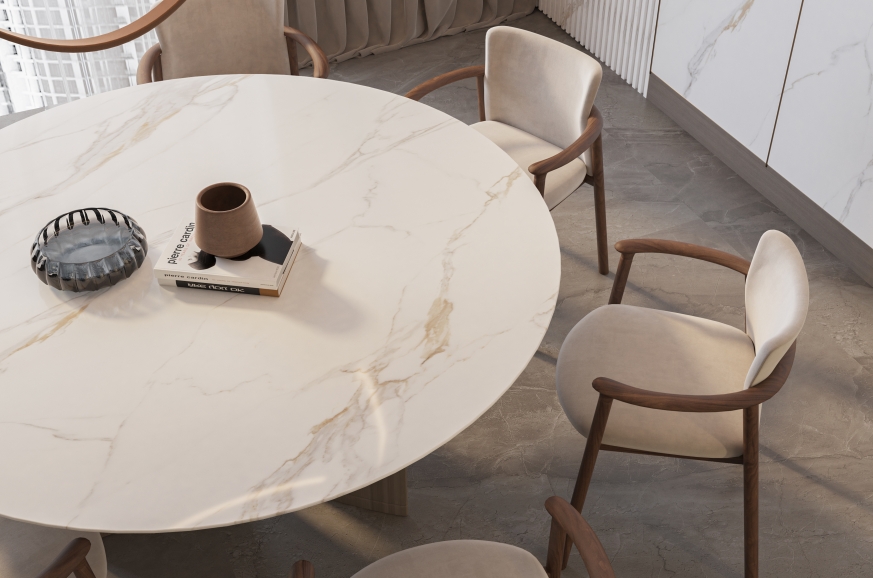
When considering which porcelain slab thickness is best for a countertop, there are three primary types to consider: standard, thin-body, and full-bodied.
Each type has its own unique benefits and is suited to different applications, so it's important to understand the differences between them before making a decision.
Standard porcelain slab thickness:
Typically, porcelain countertop slabs vary in thickness from 12mm to 20mm. This range of thickness offers a balance between aesthetics and practicality, allowing for a sleek and modern look without sacrificing necessary strength.
This standard size is commonly used for both kitchen and bathroom countertops, providing a durable and contemporary appearance. 12mm slabs are best for low-traffic areas, while 20mm slabs are more suitable for areas with heavier use.
It is important to consider the level of use when selecting the slab thickness, as this will determine how long the countertop will last. Additionally, thicker slabs are more expensive than thinner ones, so it is important to choose the right slab for the application.
With the right selection, a porcelain slab can provide a stylish and long-lasting countertop.
Thin-body porcelain slab thickness:
Building on the standard porcelain slab thickness, thin-body porcelain slabs offer an even more lightweight and versatile option, typically ranging in thickness from 6mm to 12mm. These slabs are suitable for a variety of applications including countertop overlays, backsplashes, and wall cladding.
As they are thin, they may require additional support for stability and durability. Installation can also be tricky, so it is important to follow the manufacturer's instructions carefully.
Thin-body porcelain slabs are a great choice for those wanting a high-end look without the weight of traditional porcelain slabs. They also offer superior heat, scratch, and impact resistance, making them a great choice for busy households.
Full-bodied porcelain slab thickness:
The most common full-bodied porcelain slab thicknesses are 20mm or greater, providing a robust and luxurious look to countertops. These slabs are preferred for their exceptional durability and strength, making them a great choice for high-traffic areas or outdoor applications.
The substantial thickness of these slabs can give a bold and eye-catching look to any countertop. Additionally, they are easy to clean and maintain and their durability makes them a long-lasting choice.
The full-bodied porcelain slabs are definitely a great option for those looking for a strong and stylish countertop.
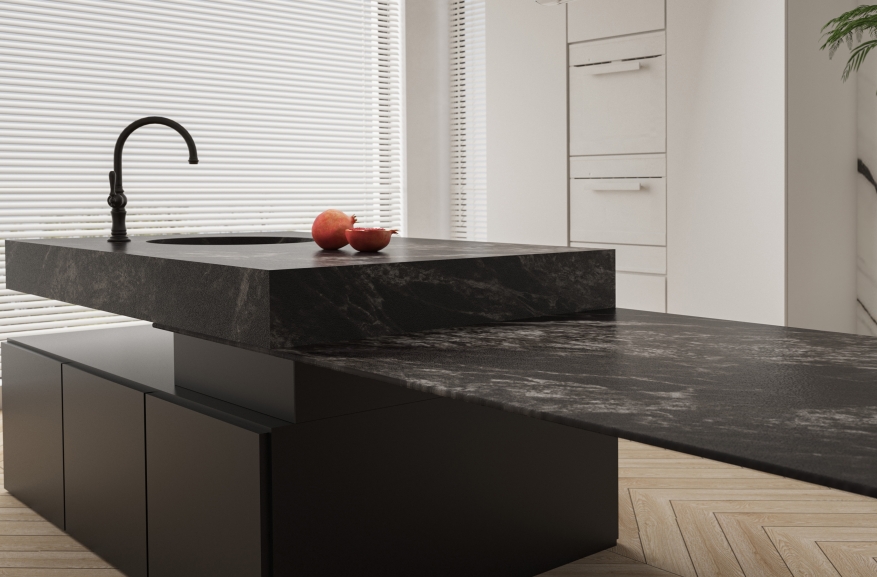
When selecting the right thickness of porcelain slab for a given application, there are several factors to consider.
Intended Use:
When deciding on porcelain slab thickness, the intended use of the slabs should be taken into consideration. Here are a few key factors to consider:
- Outdoor vs Indoor: Full-bodied slabs are generally better for outdoor spaces, while thinner slabs are more suitable for indoor walls or backsplashes.
- Durability: Porcelain slabs need to be able to withstand wear and tear, so choosing the right thickness is essential.
- Aesthetics: Depending on the desired look, thin slabs can create an elegant, contemporary feel, while thicker slabs may give a more traditional, timeless look.
When planning a porcelain slab installation, it is important to evaluate the intended use and select the most appropriate thickness. Taking the time to evaluate these factors will ensure the desired look and durability are achieved.

Substrate Strength:
It is important to consider the strength of the substrate when selecting the thickness of the porcelain slabs, as their weight could cause undue stress on weaker subfloors. It is essential to assess the condition of the surface prior to installation to ensure it is suitable for the chosen slab thickness. If in doubt, professional guidance should be sought to confirm suitability.
Full-bodied slabs may require a more robust substrate, such as concrete or fiberglass, to support the greater weight. On the other hand, thinner slabs may require less load-bearing capacity and can be installed on plywood or other treated wood.
In addition, adhesive should be chosen that is compatible with the substrate and the porcelain slabs. Professional advice can be sought to ensure the correct product is selected.
Glazed vs. Unglazed Porcelain Slabs:
When selecting porcelain slabs, it is essential to weigh the advantages and disadvantages of both glazed and unglazed options in order to determine the best thickness for the specific application. Here are the key factors to consider:
Glazed porcelain slabs are coated with a layer of liquid glass, enhancing the tile's durability, offering a wider range of design options, and providing protection against stains.
Unglazed porcelain slabs lack this protective layer, making them more susceptible to staining and wear. However, their color runs through the entire thickness of the slab, so if it chips, the same color will be visible underneath.
Having a clear understanding of these factors will help ensure that the porcelain slab chosen is the most suitable for the job.
Now that you understand the key factors to consider for porcelain slab thickness, it’s time to take the next step. Whether you need expert guidance or want to explore a wide selection of slabs, we’re here to help! Contact us today for personalized advice, or browse our collection to find the ideal slab for your project.
Most porcelain slabs require particular installation considerations based on their thickness. Generally speaking, slabs of 3/8 inch or thicker should be installed with thin-set mortar, while slabs of 1/4 inch or thinner should be installed with a pressure-sensitive adhesive. The type of adhesive used should match the backer material of the slab. Additionally, the thickness of the slab will determine the weight of the slab and the amount of support needed to ensure that it is properly supported.
| Slab Thickness | Adhesive Type | Support Needed |
| 3/8 inch | Thin-set | Moderate |
| 1/4 inch | Pressure-sensitive | Heavy |
| Less than 1/4 inch | Pressure-sensitive | Heavy |
It is also important to consider the flooring type when installing porcelain slabs. While some floors may require an additional layer of underlayment, others may be able to support the slabs without one. It is also important to consider the environment the porcelain slab will be placed in. Slabs used in wet areas, such as bathrooms, should be sealed with a waterproof sealant. Finally, the substrate should be completely dry and level before installation.
When installed properly, porcelain slabs can not only add beauty to a home, but also durability and longevity. By following the installation guidelines based on the slab's thickness, the porcelain slabs can be properly installed and enjoyed for many years to come.
Porcelain slabs offer a variety of features that make them an ideal solution for countertops and other surfaces. They are highly durable and resistant to staining and scratching, making them an excellent choice for high-traffic areas.
Additionally, the wide variety of colors, textures, and sizes available ensures that porcelain slabs can be used to create a unique design that fits any space.
Unique Design:
How does porcelain slab thickness influence its unique design features?
With digital printing technology, slabs can be tailored to the desired aesthetic, allowing for varied tones, colours, shades, and effects. This includes:
-Continuous veining, even on large slabs
-The ability to correct or emphasize certain aesthetic aspects
-The capacity to create different textures and finishes
Digital printing technology makes it possible to create unique designs which are not achievable with natural marble.
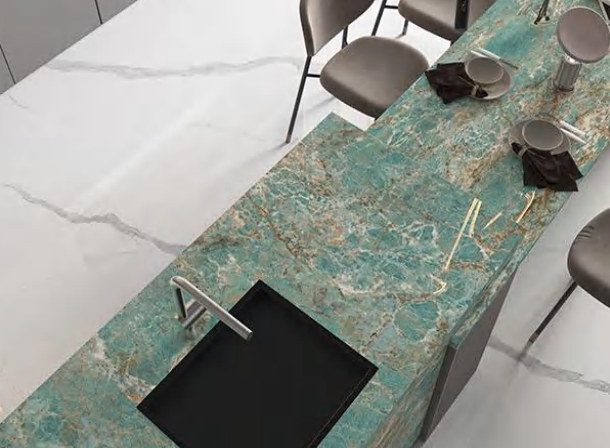
Supreme Durability:
Boasting supreme durability, porcelain slabs are designed to withstand long-term use in both indoor and outdoor settings. Its hardwearing nature makes it an ideal choice for applications which require strength and longevity. Its resistance to etching, staining, and other damage makes it a low-maintenance option that is also extremely cost-effective.
Porcelain slabs come in a variety of thicknesses, ranging from 6mm to 20mm, allowing for maximum design flexibility. The thickness of the porcelain slab can be tailored to meet any specific requirements.
Visual Continuity:
Building on its supreme durability, porcelain slabs also provide excellent visual continuity with their wide range of thicknesses from 6mm to 20mm.
The advantages of using porcelain slabs include:
-Easy to achieve continuity in design
-No need to worry about distracting grout lines
-Large surface area with less grout space required
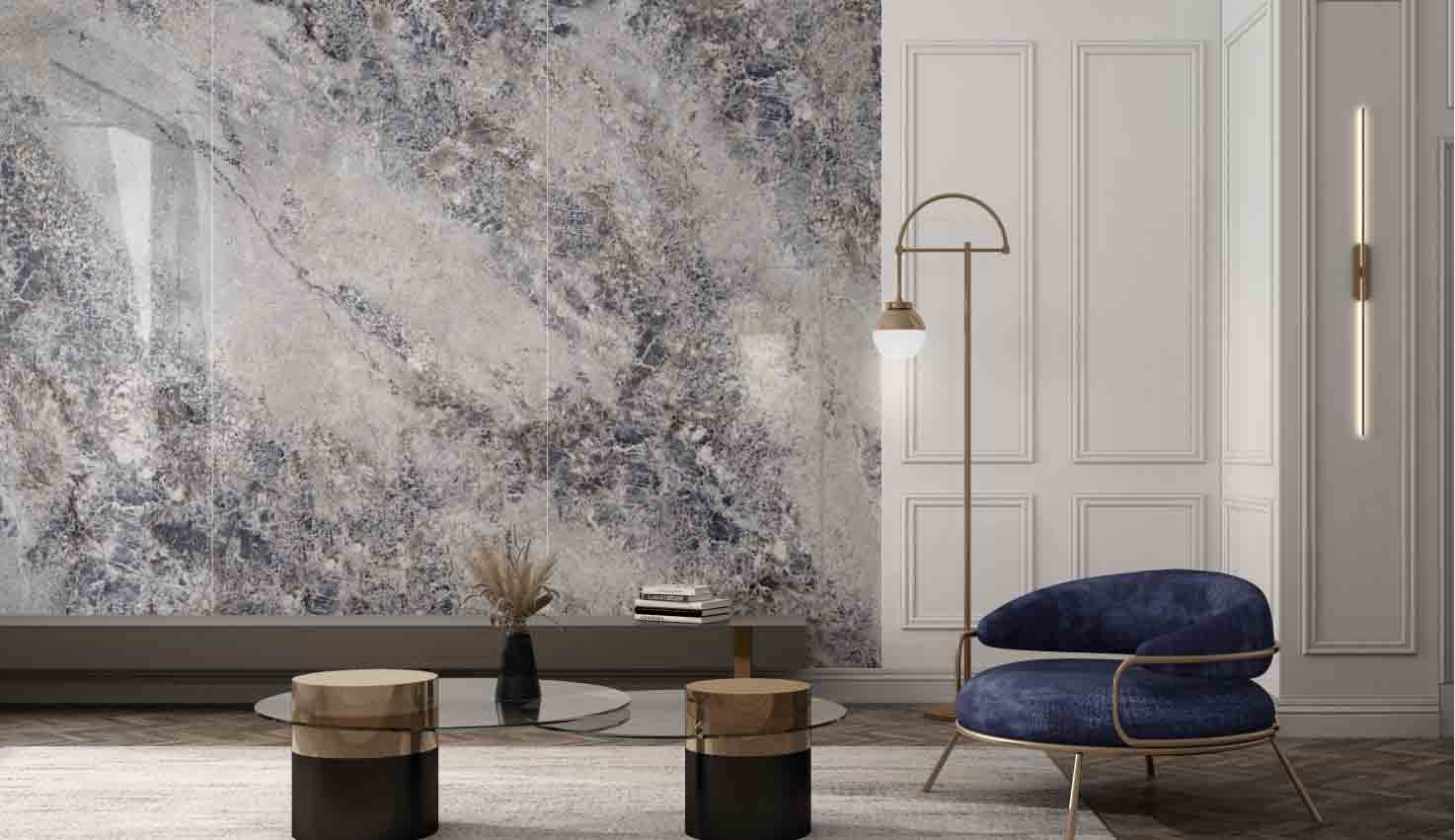
Easy Maintenance:
Given its robust and durable nature, porcelain slabs require minimal maintenance and offer an array of practical benefits.
The slabs are highly stain resistant, heat resistant, and water resistant. Cleaning is easy and requires only a soft cloth and warm water.
Also, the lack of grout lines means dirt has fewer places to accumulate, and the grout lines that are present won't discolor or deteriorate over time.
Porcelain slabs offer great convenience with their easy maintenance and allow for faster cleaning.
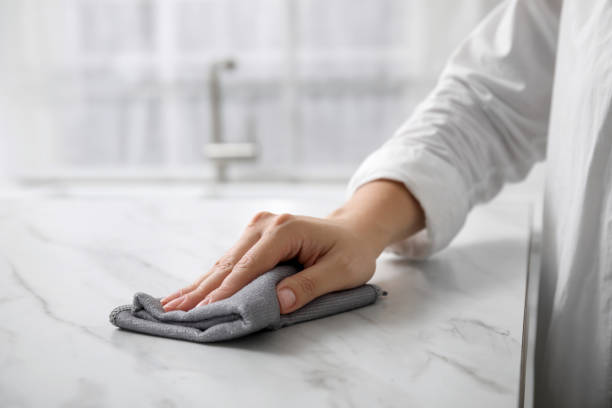
Flexible Installation:
Porcelain slabs offer flexible installation options due to their varying thickness levels. They come in thicknesses that range from 6mm to 20mm, making them a great option for different types of applications. The benefits of this flexibility include fast-paced projects with short timelines, cost savings when installing over existing tile, and easily spanning across typical tile installations.
Porcelain slabs are known for being durable and long-lasting, making them perfect for any environment. With the variety of thicknesses available, they can be used in a variety of applications without compromising on performance or aesthetics.
Thinner is Better for Your Wallet:
Not only does it offer flexible installation options, but the thinner construction of porcelain slabs can also lead to significant cost savings.
The 6mm thickness of these slabs is about half that of a typical porcelain tile, resulting in a lighter overall weight that is easier to cut and handle during installation.
With less material used in their construction, the cost per square foot of these slabs is much lower than other porcelain tiles, making them an excellent choice for those looking to get a quality product without breaking the bank.
Furthermore, porcelain slabs also require less grout, which helps to reduce the overall cost of the installation.
This makes them a great option for those looking to save money on their tile project.
Here you may also want to know the beautiful porcelain slab price.
Porcelain Slabs offer a variety of creative uses for walls and floors, countertops, and special features. They have the potential to bring a unique elegance to any space and can also provide a functional and durable surface.
Let's explore how to make the most of these versatile slabs in your home.
Walls and Floors:
Although porcelain slabs come in sizes and thicknesses that vary, they can be used to create stunning floors and walls in your home. Here are some of the advantages of using porcelain slabs:
- Durable and low maintenance
- Stunning stone-like patterns
- Large format for an impressive and luxurious look
Porcelain slabs are easy to install and provide a great value for the money. They are strong and can withstand everyday wear and tear. The large format allows for fewer grout lines and a more seamless installation. Plus, the slabs resist staining, scratching, and fading, making them a great choice for any home.
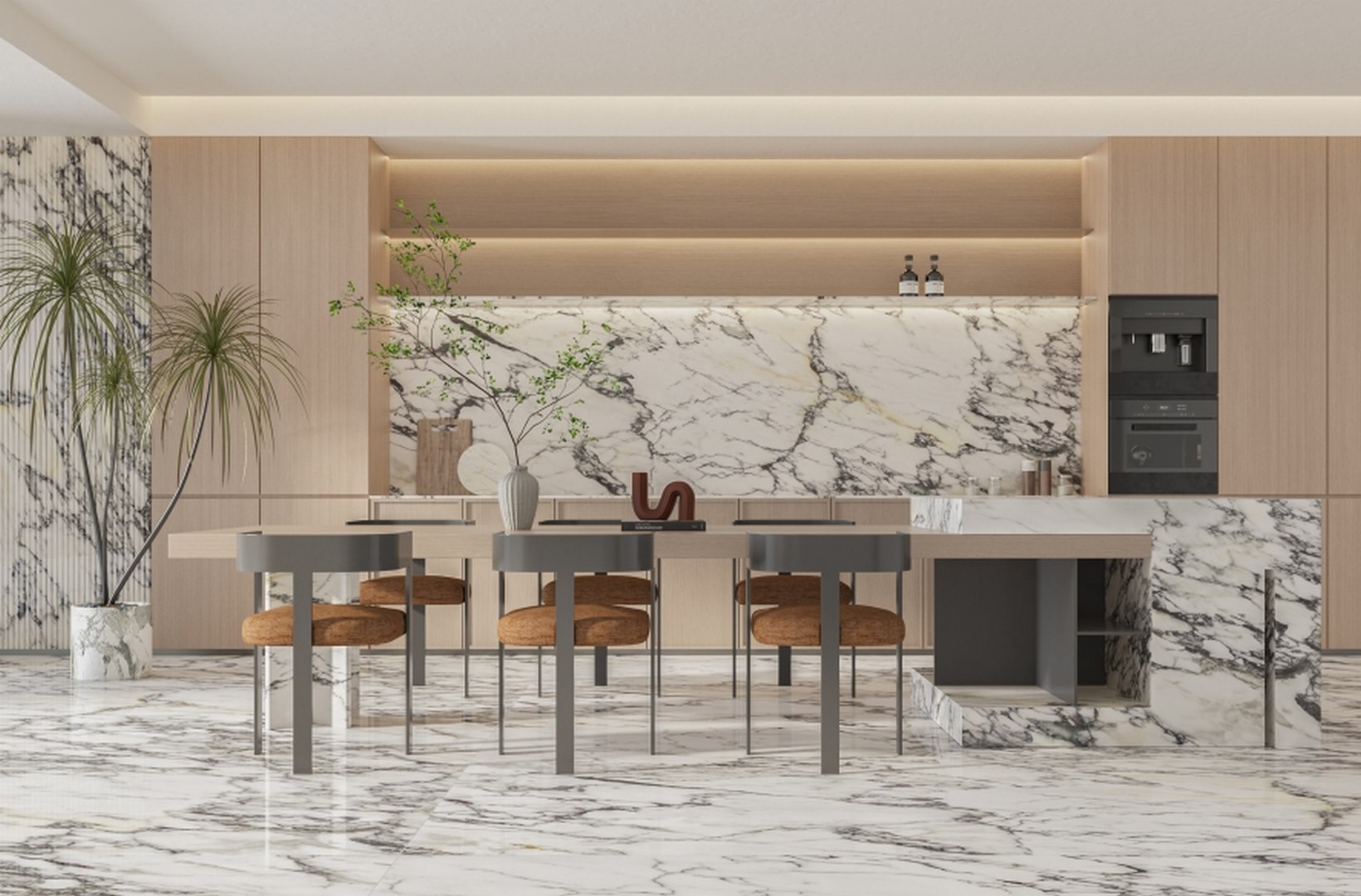
Kitchen Countertops :
Building on the advantages of porcelain slabs for walls and floors, they can also be used to create beautiful and durable kitchen countertops. Porcelain slabs are non-porous and extremely scratch and stain-resistant, making them a great choice for food preparation and sanitation.
The thickness of the slabs can vary, and often ranges from 6mm to 20mm. The strength of the countertop depends on the thickness of the slab, with thicker slabs providing more durability.
The slabs come in a variety of finishes, from polished to matte, allowing for a range of design options. Additionally, porcelain slabs can be cut and shaped to fit any size countertop.
With proper care and maintenance, a porcelain slab countertop can last for many years.

Shower Walls and Bathrooms :
When considering the installation of porcelain slabs for shower walls and bathrooms in your home, the thickness of the slabs should be taken into account. Not only does thickness make a difference in the look of the finished product, but also in the overall durability and longevity of the shower walls and bathrooms.
Here are some great reasons to consider porcelain slab thickness:
- Increased durability due to higher strength and resistance to cracking
- Added protection from moisture and water damage to the walls or floor
- Enhanced aesthetic appeal due to the unique textures and patterns available in thicker slabs
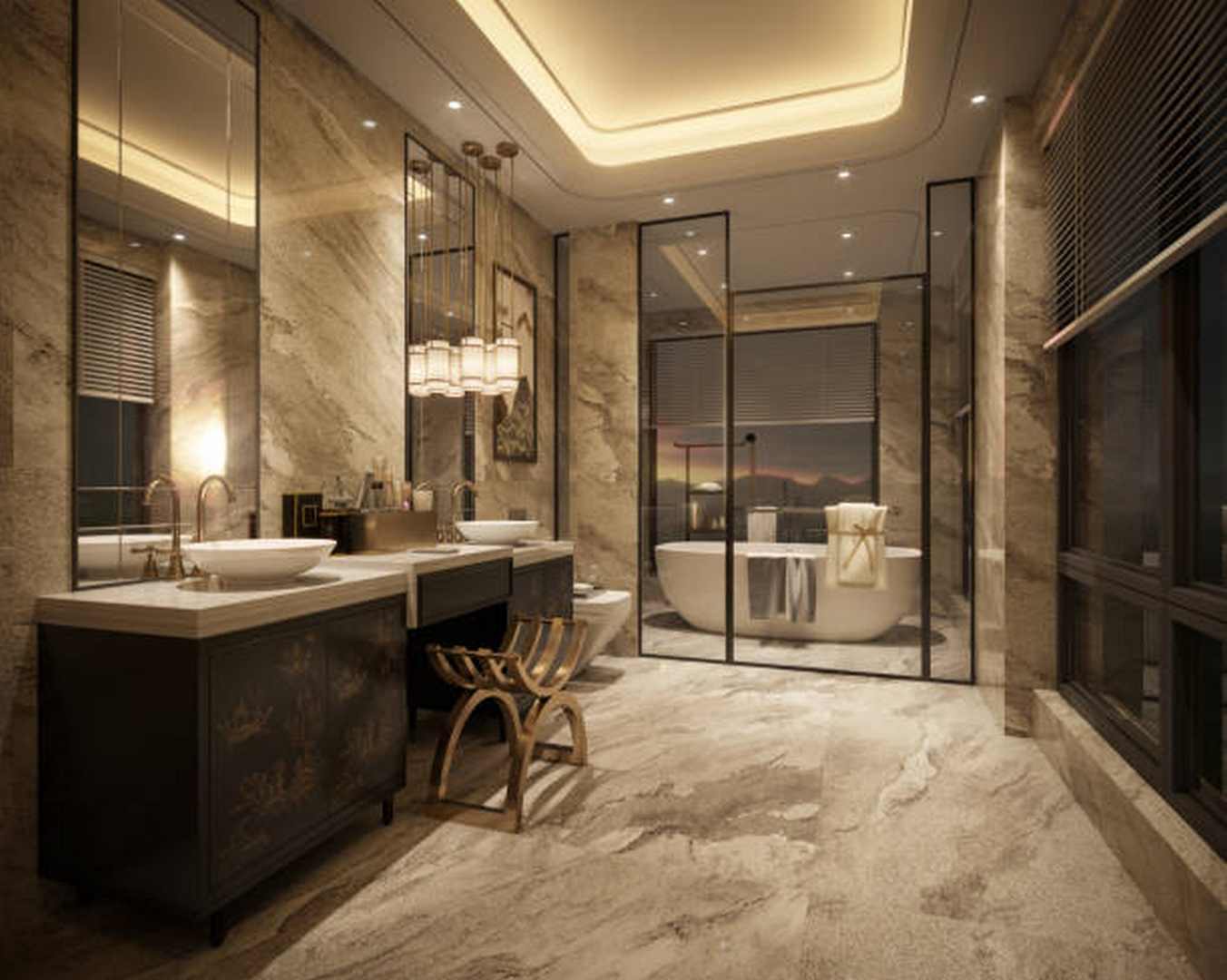
Special Features :
Whereas porcelain slabs are commonly used for shower walls and bathrooms, they can also be used for other special features in your home. Thanks to technological advancements, these extra-thin slabs have become a popular choice for wardrobe, cabinetry, furniture, and fireplaces.
With the help of these slabs, you can create a one-of-a-kind look for your home. They come in a variety of sizes, shapes, and colors, making it easy to customize your space.
Browse normal body porcelain slab from Sunvin Ceramics with an unbeatable price! There's always one you like!
1.How Durable Are Porcelain Slabs?
Porcelain slabs are highly durable, providing excellent resistance to scratches, staining, and wear. It is also resistant to temperature, moisture, and chemical damage, making it an ideal choice for areas with heavy foot traffic.
2.How Much Does a Porcelain Slab Cost?
Porcelain slab prices are $20 to $60 per square foot for materials only, depending on the size, finish, and edge.
3.Are Porcelain Slabs Heat Resistant?
Yes, porcelain slabs are heat resistant. They are able to withstand temperatures of up to 1,200 degrees Celsius and will not be affected by sudden temperature changes. Porcelain slabs are also non-porous and stain-resistant, making them an ideal choice for kitchens and bathrooms.
4.What Are the Benefits of Using Porcelain Slabs?
Porcelain slabs are highly durable, water resistant, and easy to clean. They offer a modern, elegant look and are extremely versatile, suitable for both indoor and outdoor applications. They are also non-porous, making them resistant to bacteria and other contaminants.
5.Are There Different Colors and Styles of Porcelain Slabs Available?
Yes, porcelain slabs come in many different colors and styles. From neutral tones to natural stone-looks, there is a wide variety of options to choose from. Porcelain slabs are also available in various textures and sizes, allowing for a customized design.
Porcelain slabs can be a great addition to any home, providing durability, visual appeal, and an easy to maintain surface.
Porcelain slabs are available in varying thicknesses, making it important to consider factors such as the weight of the slab, the installation method, and desired aesthetic before selecting a slab.
With the proper care and installation, porcelain slabs can provide a beautiful and long-lasting addition to any home.
Porcelain slabs are gaining worldwide popularity, but locating a dependable expert in this field can still pose a challenge. Working with porcelain slabs demands a high level of skill and expertise to ensure the desired style and quality are achieved.
At Sunvin Ceramics, we stand as seasoned industry professionals, eager to assist you in sourcing exquisite, top-tier porcelain slabs for your project. Whether you have inquiries regarding porcelain slabs or require guidance for a large-scale project, we are the experts you've been seeking. Forge a partnership with Sunvin Ceramics today and anticipate the delivery of beautifully customized porcelain slabs, perfect for enhancing both indoor and outdoor surfaces in your home.
